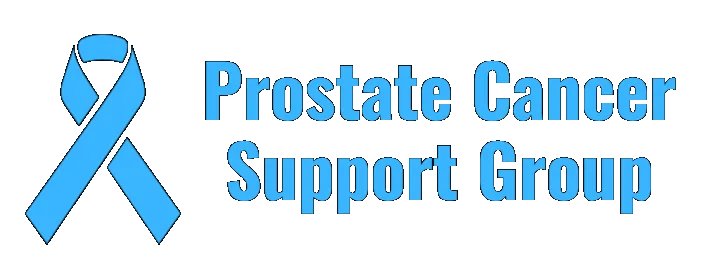Mental Rest: Managing Stress and Improving Sleep During Prostate Cancer Treatment
March 21, 2025, by Coach Brian McCarthy

"Amidst the storm of cancer treatment, find your calm. Prioritize mental rest, for a tranquil mind fosters resilience and nourishes the body." - CLC Brian McCarthy
Both meditation and deep breathing tap into the mind-body connection. Cancer treatment often leaves men feeling powerless, but these practices restore a sense of agency. They lower cortisol levels—the stress hormone that can keep you wired at night—and increase feelings of relaxation. Over time, they can help break the cycle of sleeplessness, allowing the body to recharge and better face the challenges ahead.
Introduction
Receiving a prostate cancer diagnosis and undergoing treatment can take a significant toll on a man’s mental and physical well-being. For many, the stress and overwhelm of battling cancer leads to sleepless nights, compounding the challenges of an already difficult journey. While medical treatments focus on the body, addressing mental health is equally vital. Practices like meditation and deep-breathing exercises offer accessible, effective ways to manage stress and promote better sleep quality, providing a sense of calm amid the storm.
The Sleep Struggle in Prostate Cancer Treatment
Sleep disturbances are a common experience for men undergoing prostate cancer treatment. The reasons are multifaceted: anxiety about the future, discomfort from treatment side effects, and the emotional weight of the diagnosis can keep the mind racing long after the lights go out. Studies have shown that poor sleep not only diminishes quality of life but can also hinder the body’s ability to heal and cope with the demands of treatment. For men losing sleep night after night, finding tools to quiet the mind becomes essential.
Meditation: A Path to Mental Rest
Meditation is a powerful practice that encourages mental rest by focusing the mind and releasing tension. It doesn’t require special equipment or a steep learning curve, making it an ideal option for anyone navigating the challenges of cancer treatment. Even a few minutes a day can make a difference.
One simple approach is mindfulness meditation. Sit or lie down in a comfortable position, close your eyes, and bring your attention to your breath. Notice the sensation of air moving in and out, without trying to change it. When thoughts about treatment, fear, or the day ahead creep in—as they inevitably will—gently acknowledge them and return your focus to your breath. Over time, this practice can train the mind to let go of persistent worries, creating space for restful sleep.
For those new to meditation, guided sessions can be especially helpful. Apps like Calm, Headspace, or Insight Timer offer free or low-cost recordings tailored to stress relief and sleep, often led by soothing voices that guide you step-by-step. A 10- to 20-minute session before bed can signal to your body and mind that it’s time to unwind.
Deep-Breathing Exercises: Calming the Body and Mind
Deep-breathing exercises are another accessible tool to manage stress and improve sleep quality. These techniques work by activating the parasympathetic nervous system, which counteracts the “fight or flight” response triggered by anxiety. When practiced regularly, deep breathing can lower heart rate, reduce muscle tension, and prepare the body for rest.
One effective method is the 4-7-8 technique. Here’s how it works:
Inhale quietly through your nose for a count of 4.
Hold your breath for a count of 7.
Exhale slowly through your mouth for a count of 8, making a soft “whoosh” sound.
Repeat this cycle 4-5 times.
This exercise can be done anywhere—whether you’re lying in bed or sitting in a quiet corner during the day. It’s particularly useful in moments of acute stress, such as after a difficult medical appointment, or when racing thoughts make sleep feel out of reach.
Integrating Mental Rest into Your Routine
Starting small is key. Try setting aside 5-10 minutes each day for meditation or deep breathing, ideally at the same time, like before bed or after a treatment session—to build a habit. Pairing these practices with other sleep-friendly rituals, such as dimming lights, avoiding screens, or sipping herbal tea, can amplify their effects.
It’s also worth discussing sleep struggles with your healthcare team. They may recommend complementary strategies, like cognitive behavioral therapy for insomnia (CBT-I), or adjust medications that could be disrupting rest. Mental rest practices aren’t a cure-all, but they’re a valuable piece of the puzzle.
A Gentle Step Toward Healing
Prostate cancer treatment is a marathon, not a sprint, and preserving mental health is as critical as addressing the physical disease. Meditation and deep-breathing exercises offer men a way to reclaim moments of peace, reduce stress, and invite better sleep into their lives. On nights when the weight of cancer feels heaviest, these simple tools can lighten the load, fostering resilience for the road ahead.
Disclaimer
Coach Brian McCarthy is a certified Life Coach but is not a doctor; please consult your own medical team before starting something, stopping something or making changes to your prostate cancer battle plan.
Next Steps
Let us be your beacon of hope during this challenging journey. From emotional support to practical strategies, we tailor our coaching sessions to help you manage the roller coaster of emotions that come with dealing with prostate cancer. Together, we’ll empower you to stay strong, resilient, and optimistic in the face of adversity.
Use the calendar below to book your complementary discovery call on ‘Mental Rest: Managing Stress and Improving Sleep During Prostate Cancer Treatment’ or to discuss our coaching services for you and your family.
Don’t wait… your mental well-being matters just as much as your physical health – let us walk beside you every step of the way! – book your FREE conversation to discuss how we can help you today!

